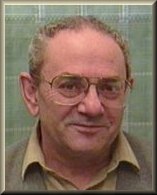
| Vladimir Vapnik | |
| Grace Wahba | |
| Thomas S. Huang |
 Vladimir Vapnik
Vladimir Vapnik
Professor Vladimir Vapnik gained his Masters Degree in Mathematics.
From 1965 to 1990 he worked at the Institute of Control Sciences, Moscow,
where he became Head of the Machine Learning Research Department.
He then joined AT&T Bell Laboratories and later AT&T Labs-Research.
From 1995 he is also Professor of London University.
Professor Vapnik has taught and researched in,
theoretical and applied statistics for over 30 years. He has published 7
books and over a hundred research papers. His major achievements
have been the development of a general theory for minimizing the expected
risk using empirical data, and a new type of learning machines
called Support Vector Machines that possesses a high level of
generalization ability. These techniques have been used to solve many
pattern recognition and regression estimation problems and have been
applied to the problems of dependency estimation, forecasting, and
constructing intelligent machines.
His current research is presented in his latest books "The Nature of
Statistical Learning Theory", Springer, New-York 1995,
and "Statistical Learning Theory", J. Wiley, New-York, 1998.
Visit Vladimir Vapnik's Homepage
![]()
Grace Wahba is John Bascom Professor of Statistics
and Professor of Biostatistics at the University
of Wisconsin-Madison. She is a member of the
American Academy of Arts and Sciences, a
fellow of several scientific societies and
the author of 110+ scientific papers plus one book.
Her scientific interests include supervised machine learning,
statistical model building,
medical and demographic risk factor estimation,
numerical weather prediction and climate
data analysis.
Visit Grace Wahba's Homepage
See abstract of keynote speech
![]()
Thomas S. Huang received his B.S. Degree in Electrical Engineering
from National Taiwan University, Taipei, Taiwan, China; and his M.S.
and Sc.D. Degrees in Electrical Engineering from the Massachusetts
Institute of Technology, Cambridge, Massachusetts. He was on the
Faculty of the Department of Electrical Engineering at MIT from 1963
to 1973; and on the Faculty of the School of Electrical Engineering
and Director of its Laboratory for Information and Signal Processing
at Purdue University from 1973 to 1980. In 1980, he joined the
University of Illinois at Urbana-Champaign, where he is now William
L. Everitt Distinguished Professor of Electrical and Computer
Engineering, and Research Professor at the
Coordinated Science Laboratory, and Head of the Image Formation
and Processing Group at the Beckman Institute for Advanced Science
and Technology.
During his sabbatical leaves: Dr. Huang has worked at the MIT Lincoln
Laboratory, the IBM Thomas J. Watson Research Center, and the Rheinishes
Landes Museum in Bonn, West Germany, and held visiting Professor
positions at the Swiss Institutes of Technology in Zurich and Lausanne,
University of Hannover in West Germany, INRS-Telecommunications of
the University of Quebec in Montreal, Canada and University of
Tokyo, Japan. He has served as a
consultant to numerous industrial firms and government agencies both in
the U.S. and abroad.
Dr. Huang's professional interests lie in the broad area of information
technology, especially the transmission and processing of multidimensional
signals. He has published 12 books, and over 400 papers in Network Theory,
Digital Filtering, Image Processing, and Computer Vision. He is a Fellow
of the International Association of Pattern Recognition, IEEE,
and the Optical Society of American; and has received a Guggenheim
Fellowship, an A.V. Humboldt Foundation Senior U.S. Scientist Award,
and a Fellowship from the Japan Association for the Promotion of
Science. He received the IEEE Acoustics, Speech, and Signal Processing
Society's Technical Achievement Award in 1987, and the Society Award in 1991.
He is a Founding Editor of the
International Journal Computer Vision, Graphics, and Image Processing; and
Editor of the Springer Series in Information Sciences, published by Springer
Verlag.
Visit Thomas S. Huang's Homepage
See abstract of keynote speech